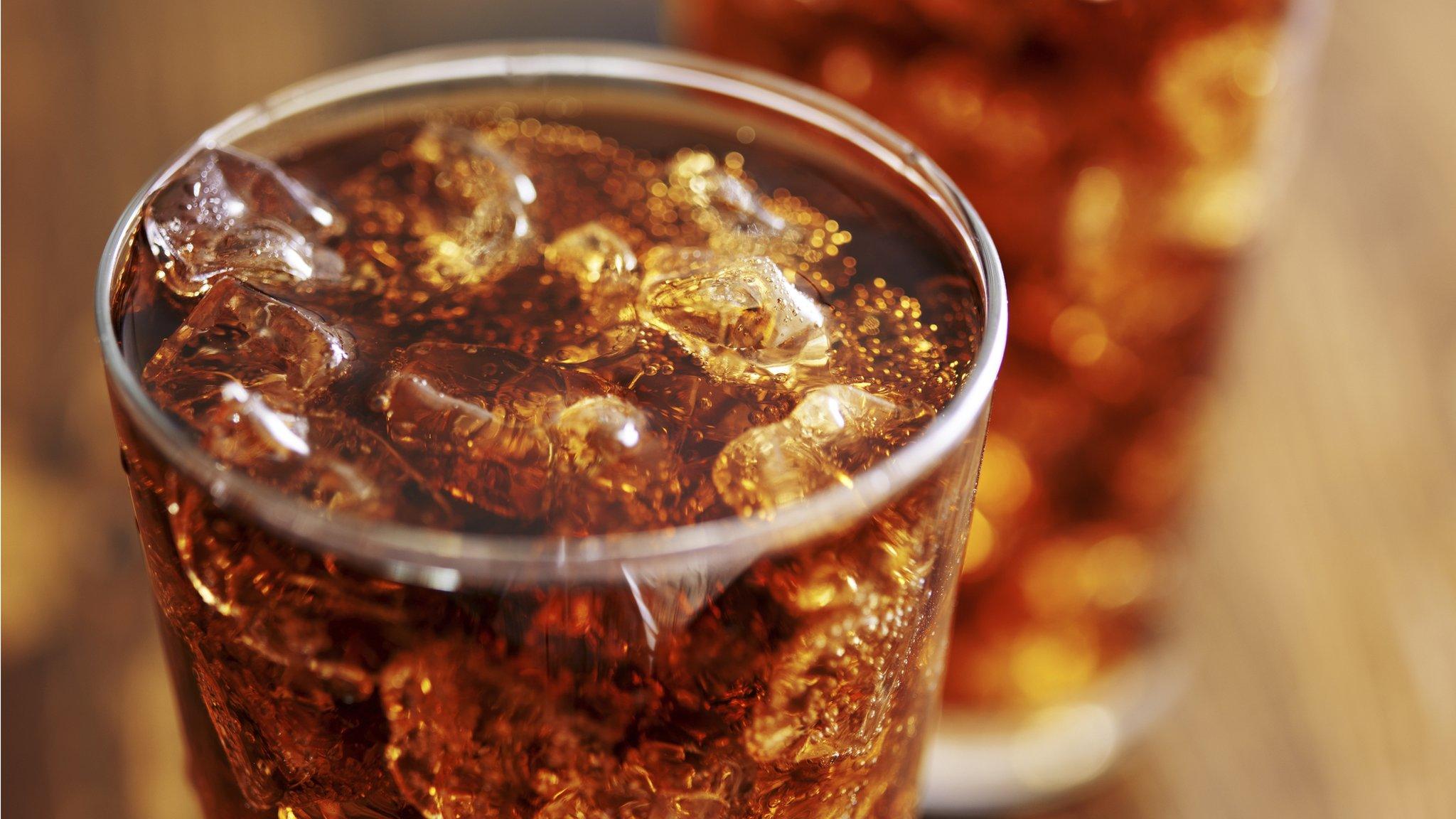'Shocking' sugar levels in High Street hot drinks, warns charity
- Published
Sugar-laden hot drinks in the spotlight
There are "shocking" amounts of sugar in some hot drinks sold in High Street cafes, a campaign group has warned.
Action on Sugar analysed 131 hot drinks and found a third contained at least as much sugar as a can of Pepsi or Coca-Cola, which contains nine teaspoons.
The charity said in some of the worst cases the drinks contained 20 or more teaspoons of sugar.
Coffee shop chains Starbucks, Costa and Caffe Nero said they were committed to reducing sugar content in their drinks.
The drinks assessed included flavoured coffees such as mochas and lattes, hot fruit drinks and hot chocolates from coffee shops and fast food chains.
The charity found that 98% of the drinks tested would receive a red nutritional value label for high sugar content.
The recommended maximum intake of added sugar per day for those aged 11 and over is about 30g or seven teaspoons, the NHS says, external.

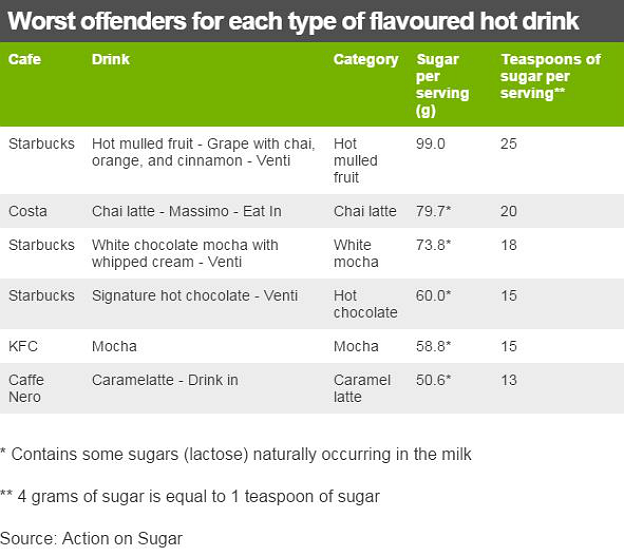
Starbucks' venti Grape with Chai, Orange and Cinnamon Hot Mulled Fruit was found to have the highest sugar content of the drinks tested, with 25 teaspoons of sugar per serving, the campaign group said.
Costa's massimo eat-in Chai Latte was found to contain 20 teaspoons of sugar and Starbucks' venti White Chocolate Mocha with Whipped Cream was found to have 18.
KFC's mocha and Starbucks' Signature Hot Chocolate both had 15 teaspoons of sugar per serving while Caffe Nero's drink-in Caramelatte had 13.
The group's researcher Kawther Hashem called on coffee shop chains to reduce the amount of sugar in their drinks, improve their labelling and scrap extra-large serving sizes.
"These hot flavoured drinks should be an occasional treat, not an everyday drink," she said.
"They are laden with an unbelievable amount of sugar and calories and are often accompanied by a high sugar and fat snack."
She told BBC Radio 4's Today programme she was "surprised" by the results, and said the campaign group had tested only the larger portion sizes on offer.

'Three times a day, seven days a week'
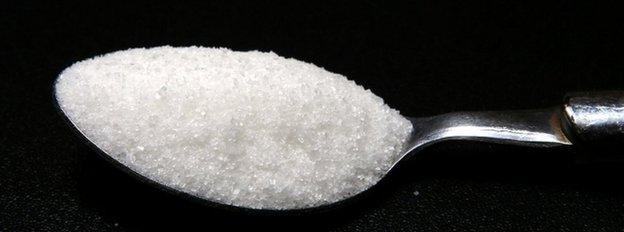
Case study: Mark Cresswell from London
"I used to drink a large white cafe mocha with caramel and vanilla syrup, cream on top, caramel and chocolate drizzle at Starbucks - approximately three times a day, seven days a week.
"I did this for about a year. At the time, I knew this drink had lots of sugar and fat, but I wasn't aware of just how much.
"At one point the assistant manager refused to serve me because they were concerned of the health impact. The rest of the staff continued to serve me.
"I drastically cut back on these sugary drinks after I was diagnosed with a very high cholesterol level and liver problems three years ago.
"I still have high cholesterol now and was recently diagnosed with a fatty liver - which means it is not working properly - not from alcohol but from sugar.
"While I believe we should all take responsibility for our health, I do feel that coffee shops which allow their customers to customise their drinks to extreme levels are not helping."

Professor Graham MacGregor, Action on Sugar chairman, said the group's report highlighted "yet again another example of scandalous amounts of sugar added to our food and drink".
"No wonder we have the highest rates of obesity in Europe," he said.
A Starbucks spokeswoman said the chain had "committed to reduce added sugar" by 25% by the end of 2020 in its "indulgent drinks".
"We also offer a wide variety of lighter options, sugar-free syrups and sugar-free natural sweetener and we display all nutritional information in-store and online," she said.
Kerry Parkin, Costa's head of communications, said the chain had already taken "significant steps" to reduce the sugar content of its drinks.
The company would be setting salt and sugar reduction targets for 2020, she said.
A Caffe Nero spokeswoman said: "We have already made changes to reduce the sugar content of some of our iced drinks for summer 2016 by over 10%.
"In addition, we offer sugar free syrups for many drinks, and all nutritional information is available on our website so that customers can make an informed choice. This will remain a focus as we look at the sugar content in all our drinks over the coming years."
- Published3 February 2016
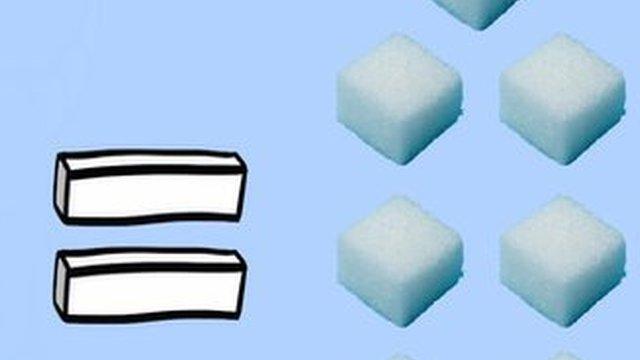
- Published25 January 2016
- Published18 January 2016
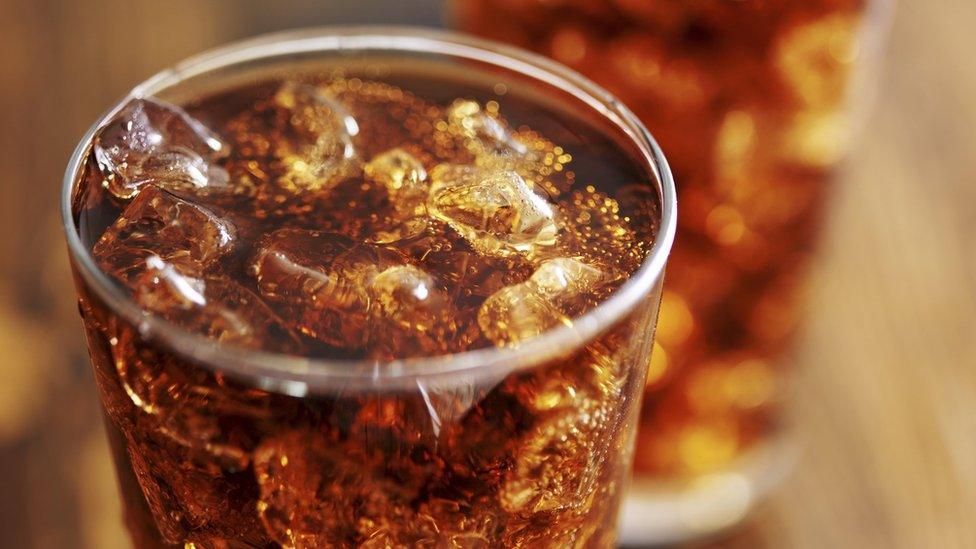
- Published22 October 2015
